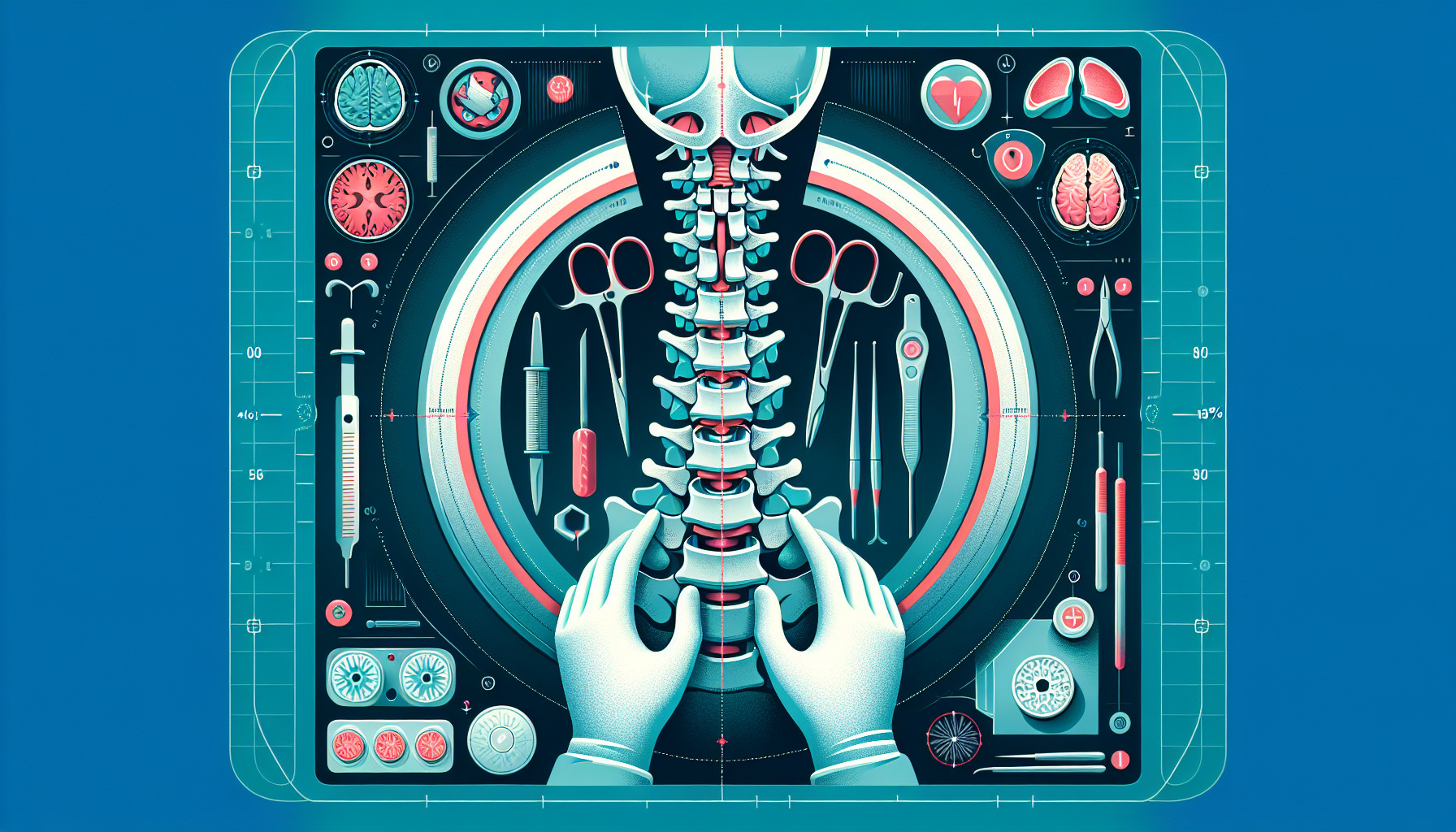Our Summary
This research paper compares two methods of spine fusion surgery, the anterior lumbar interbody fusion (ALIF) and the posterior lumbar interbody fusion (PLIF). The study looked at 373,585 patients who had one of these surgeries between 2016 and 2018. The data showed that 69% of patients had the posterior approach, while 31% had the anterior approach. The study found that the posterior approach was better in several ways. It was associated with shorter hospital stays, lower hospital charges, and fewer post-surgery complications. Conditions like tobacco dependence, diabetes, and osteoporosis were found to predict certain complications after surgery. The study concludes that these factors should be considered when deciding which surgical approach to use. The anterior approach was associated with higher costs, longer hospital stays, and more complications, including wound issues and non-healing of the fusion site.
FAQs
- What are the two methods of spine fusion surgery compared in this research paper?
- According to the study, which surgical approach has shown better results in terms of hospital stays, costs, and post-surgery complications?
- What conditions were found to predict certain complications after spine fusion surgery?
Doctor’s Tip
A doctor might tell a patient undergoing spinal fusion surgery to quit smoking and manage their diabetes and osteoporosis to reduce the risk of complications. Additionally, they may recommend discussing with their surgeon which approach (ALIF or PLIF) would be best for their specific situation based on the findings of this study.
Suitable For
Patients who are typically recommended for spinal fusion surgery include those with severe and persistent back pain, spinal instability, degenerative disc disease, spinal stenosis, spondylolisthesis, spinal deformities, spinal fractures, and failed previous back surgeries. Additionally, patients who have not responded to conservative treatments such as physical therapy, medications, and injections may be candidates for spinal fusion surgery. It is important for patients to undergo a thorough evaluation by a spine specialist to determine if they are suitable candidates for spinal fusion surgery.
Timeline
- Before spinal fusion surgery:
- Patient consults with a spine specialist to discuss treatment options for their spinal condition.
- Patient undergoes pre-operative testing and evaluations to ensure they are a good candidate for surgery.
- Patient receives instructions on how to prepare for surgery, including medications to avoid and fasting guidelines.
- Patient undergoes spinal fusion surgery, either through the anterior lumbar interbody fusion (ALIF) or posterior lumbar interbody fusion (PLIF) approach.
- Patient is monitored closely in the hospital post-surgery for any complications or issues.
- After spinal fusion surgery:
- Patient may experience pain and discomfort at the surgical site, which is managed with pain medication.
- Patient undergoes physical therapy to help with mobility and strengthening of the back muscles.
- Patient is advised on proper post-operative care, including restrictions on lifting and bending.
- Patient follows up with their spine specialist for regular check-ups and monitoring of the fusion site.
- Over time, the patient may experience improvement in their spinal condition, with reduced pain and increased mobility.
What to Ask Your Doctor
Some questions a patient should ask their doctor about spinal fusion surgery include:
- What are the potential risks and complications associated with spinal fusion surgery?
- What are the expected outcomes and success rates of the surgery?
- How long is the recovery process and what can I expect during the recovery period?
- Are there alternative treatment options to spinal fusion surgery that I should consider?
- Will I need physical therapy or rehabilitation after the surgery?
- How long will I need to take off work or limit certain activities after the surgery?
- What factors will determine whether an anterior or posterior approach is recommended for my specific case?
- How will my pre-existing medical conditions, such as diabetes or osteoporosis, impact the surgery and recovery process?
- What is the long-term prognosis for spinal fusion surgery and how likely is it to be successful in alleviating my symptoms?
- Are there any lifestyle changes or precautions I should take after the surgery to ensure a successful outcome?
Reference
Authors: De Stefano F, Haddad H, Mayo T, Nouman M, Fiani B. Journal: Clin Neurol Neurosurg. 2022 Jan;212:107061. doi: 10.1016/j.clineuro.2021.107061. Epub 2021 Nov 29. PMID: 34863055
